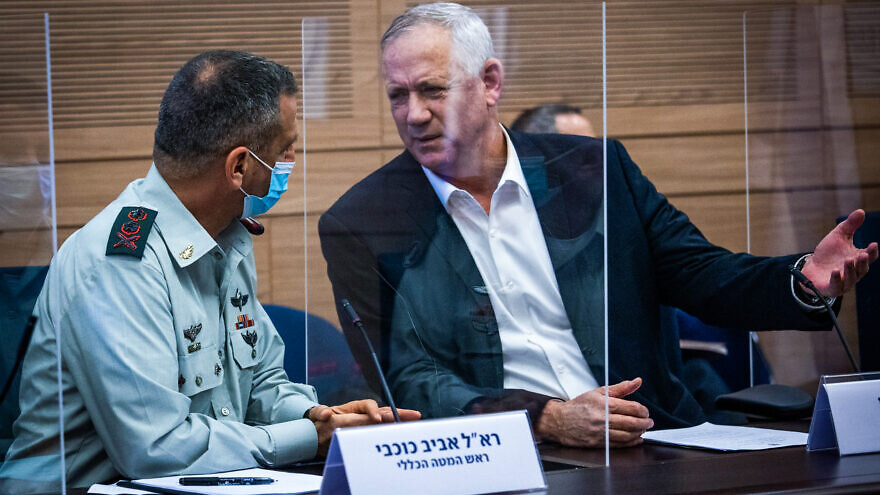
For the last six months, the IDF has been working feverishly to prepare for a possible attack on Iran’s nuclear facilities. Such an attack entails incredibly complex strategic and diplomatic planning.
A lot of words have been devoted in the past few weeks to the possibility of an Israeli attack on Iran. One after another, senior officials in the Israeli defense establishment and political echelon have made it clear that as far as Israel is concerned, “all options are on the table” when it comes to stopping Iran from developing nuclear weapons.
There is a clear purpose to these threats: to push Western powers, and in particular the United States, to take a more aggressive line on Tehran.
To put it simply, Israel is telling the world that if it won’t stop Iran, Israel will have to.
Israel made a similar threat a decade ago, one that was backed up by practical plans for an attack: Israel wanted the world to see that its air force was drilling long-range flights and strikes, and to know that it was discussing the optimal timing for an attack. U.S. intelligence—and that of other countries, obviously—did not miss the IDF’s declaration of high alert ahead of a possible imminent attack.
And it worked. The world, pressured by the possibility of an Israeli strike, took action. The United States launched secret talks with Iran, which led to the signing of the Joint Comprehensive Plan of Action (JCPOA) nuclear agreement in 2015. Iran allegedly stopped enriching uranium and got rid of the enriched uranium it already had. The possibility of an Israeli attack was taken off the table.
This was followed by accusations back and forth between the political leadership (Benjamin Netanyahu and Ehud Barak) and the military leadership (Gabi Ashkenazi and Meir Dagan) at the time about what the correct course of action had been, and who had torpedoed whom.
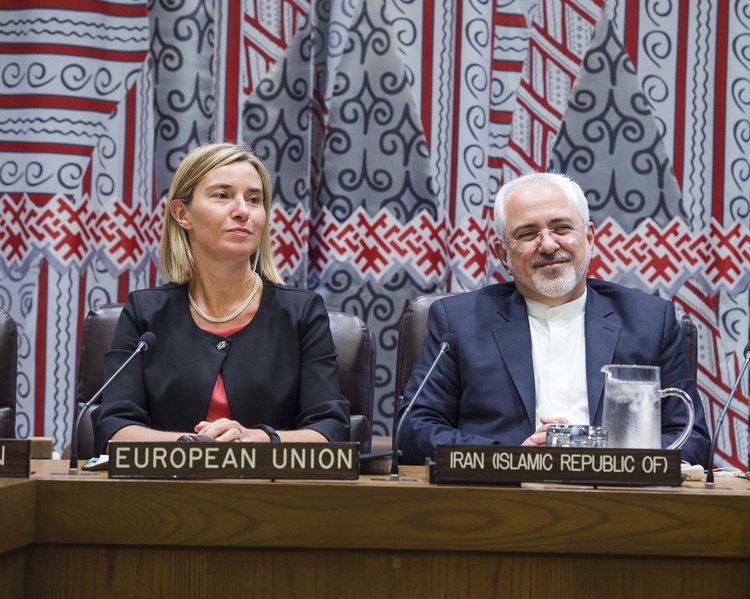
While the JCPOA was in effect, Israel fell into a certain complacency. On the assumption that as long as the agreement was in force there would be no military action against Iran’s nuclear program, plans for a strike were shelved. As a result, they never underwent the updates and adjustments needed to keep them relevant in light of the changes which have occurred over the past 10 years.
Even after the United States withdrew from the nuclear deal in 2018, Israel remained asleep at the wheel. The assumption was that one of three scenarios would play out: The Tehran regime would collapse under the crippling sanctions applied by the United States after it pulled out of the deal; the Iranians would beg to sign a new deal and it would thus be possible to make it a better, stronger, longer-term one; or Donald Trump would be reelected and order an American strike on Iran’s nuclear facilities.
None of these came to pass. The Iranians proved impressively determined, and today—despite a terrible economic situation that includes 30 million people living below the poverty line, crumbling infrastructure and the Iranian rial at an unprecedented low—they aren’t blinking when it comes to their nuclear program.
This hardline policy is being led by a brutal regime that has not been destabilized, and apparently won’t be while U.S. President Joe Biden is in office (and most likely wouldn’t have happened even if Trump had been reelected).
The American withdrawal from the deal prompted the Iranians to hit the gas on their nuclear development. It didn’t happen immediately, but in the past few years they have made impressive progress, not hesitating to skip over their commitments under the deal, especially in everything having to do with a ban on installing advanced centrifuges and enriching uranium to a high rate, in large quantities.
Recently, they also started enrichment at an underground facility at Fordow, which is much better-defended against a possible attack.

Israel is following this all closely, but took too long to respond. For example, to attack Iran, it will be necessary to refuel mid-air. Currently, the Israel Defense Forces depends on 50-year-old aircraft that need to be replaced immediately.
At the end of 2018, then-Defense Minister Avigdor Lieberman and IDF Chief of Staff Gadi Eizenkot approved a broad equipment acquisition plan that included the purchase of new fueling aircraft. But the new IDF Chief of Staff, Lt. Gen. Aviv Kochavi, delayed the decision so it would fall in line with his multi-year “Momentum” plan.
Then Israel found itself in a political maelstrom of repeated elections, with no state budget. The result: a two-year delay (the decision was finally approved at the end of 2020 and inked in early 2021).
The IDF was waiting for a special budget (a “box,” as it is termed in the military) to start preparing again for an attack on Iran. Kochavi preferred to channel funds to other things, like the multidisciplinary unit he set up as part of his multi-year plan.
When other high-ranking IDF officers, primarily Israeli Air Force commander Maj. Gen. Amikam Norkin, disputed his decision, Kochavi responded that that IDF would be given a “box” like it had been previously to deal with the Iranian issue and other matters, such as air defense and the construction of security barriers.
When Biden was elected president, the option of an American attack on Iran was dropped, and then the penny dropped for Israel. At the start of this year, Kochavi revived the military option in an aggressive speech at the Institute for National Security Studies. Once the new government’s hand was forced, he got the “box” he had been hoping for—special funding to the tune of more than 5 billion shekels ($1.6 billion) for three years.
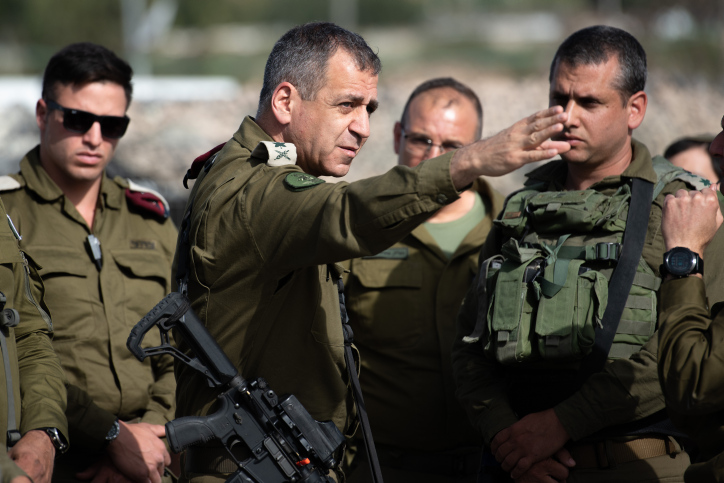
As a result, for the past six months the IDF has been working feverishly to make the military option a relevant tool. This, incidentally, is why many senior Israeli officials support a return to the previous bad deal; it might not keep Iran from developing nuclear weapons, but it will delay that outcome, allowing Israel time to prepare a more effective battle plan, in which attacks on Iran’s nuclear facilities are only one element.
Still, Israel could find itself having to decide on a strike before that, for a number of reasons: the nuclear talks could collapse, leading to Iran continuing its nuclear program until it reaches the nuclear threshold; a temporary deal that Iran will constantly challenge; or a return to the original nuclear deal, which Iran would secretly violate.
And there could be other reasons that have nothing to do with its nuclear program, like an Iranian attack on Israel using cruise missiles fired from Yemen or Iraq in response to some Israeli action or other. An attack of this type, especially if it results in casualties, could lead to an Israeli strike on Iranian turf.
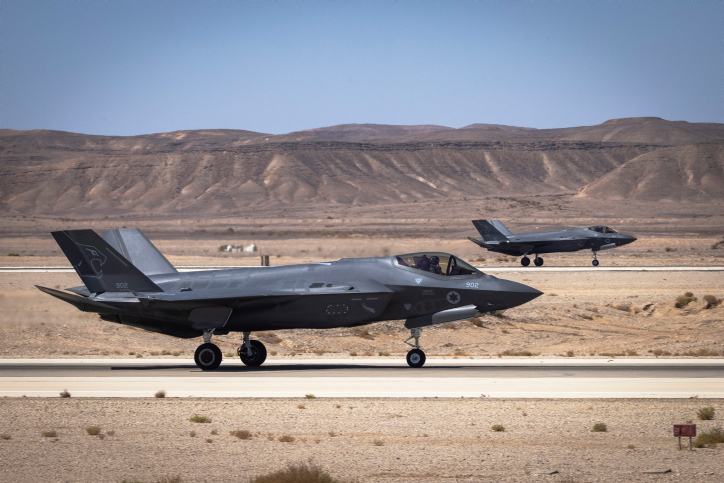
According to Sima Shine, former head of the Mossad’s research division and now a senior researcher at the INSS, “No Israeli prime minister will allow Iran to become a nuclear power on his watch. The question we need to ask ourselves is what we want to achieve by an attack, and how capable we are of doing it.”
This question is not part of the public discourse in Israel, which is limited to whether there will or will not be an attack. For the Israeli public, an attack means that planes will suddenly appear in the Iranian sky, drop bombs that will send Iran’s nuclear facilities up in flame, after which our heroic pilots will return home and be greeted with cries of joy, which is what happened after the strikes on the Iraqi nuclear reactor in 1981 and the Syrian nuclear reactor in 2007.
“The Iranian project is farther away, better defended, and more compartmentalized than the projects attacked in the past,” said IDF Maj. Gen. (res.) Amos Yadlin.
“In Iraq and Syria, we had the advantage of surprise, and here, we don’t. Israel has already proven that it can find creative ways of overcoming these obstacles, but it’s a much more complicated event. Moreover, the regional context has changed dramatically over the past decade. Then, the Americans controlled Iraq and there was a need to coordinate with them. Iran’s nuclear program was much newer and not as well protected.
Over the years since, Iran has started using its underground Fordow nuclear facility, scattered sites related to its nuclear program throughout the country and tripled its air defenses, adding dozens of batteries—including Russian S-300 systems as well as systems developed by the Iranian military based on Russian and Chinese systems. Iran’s air defenses are much more advanced than those of Syria.
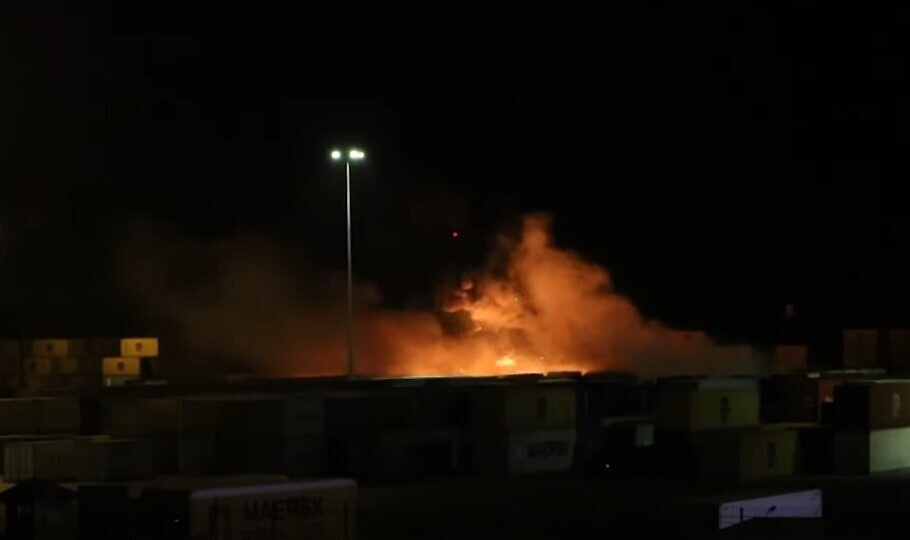
The planning stage for an airstrike against targets in Iran is longer than you might think. A senior IDF official told me this week that “There won’t be a situation in which someone makes a decision and 24 hours later there are planes in Tehran. We’ll need a long time to get the system ready for war, because our working assumption needs to be that this won’t be a strike, but a war.”
This statement illustrates how the IDF’s thinking has evolved in the past few months. It is no longer looking at a localized strike on nuclear facilities, but preparing for war. This will be a different war from any we have known—on multiple different fronts, in battles waged in multiple ways.
One need only recall the maritime battles being waged between Israel and Iran in recent months to understand the potential, which extends far behind Iran’s borders to the missile and rocket systems its satellites maintain in Yemen, Iraq, Syria, Lebanon and the Gaza Strip.
Attacks like these require models and simulations. In the past, the IDF could conduct such simulations relatively easily; the enemy was always behind technologically and unable to detect the preparations. Anyone who could detect them, such as the Americans in the case of the strike on Syria’s reactor, would have been in on the secret anyway.
Today, there are sensors everywhere; a large contingent of aircraft cannot take off without alerting the enemy. Therefore, to obscure its preparation, the IAF will need to create an ongoing routine of drills—which come at an immense expense.
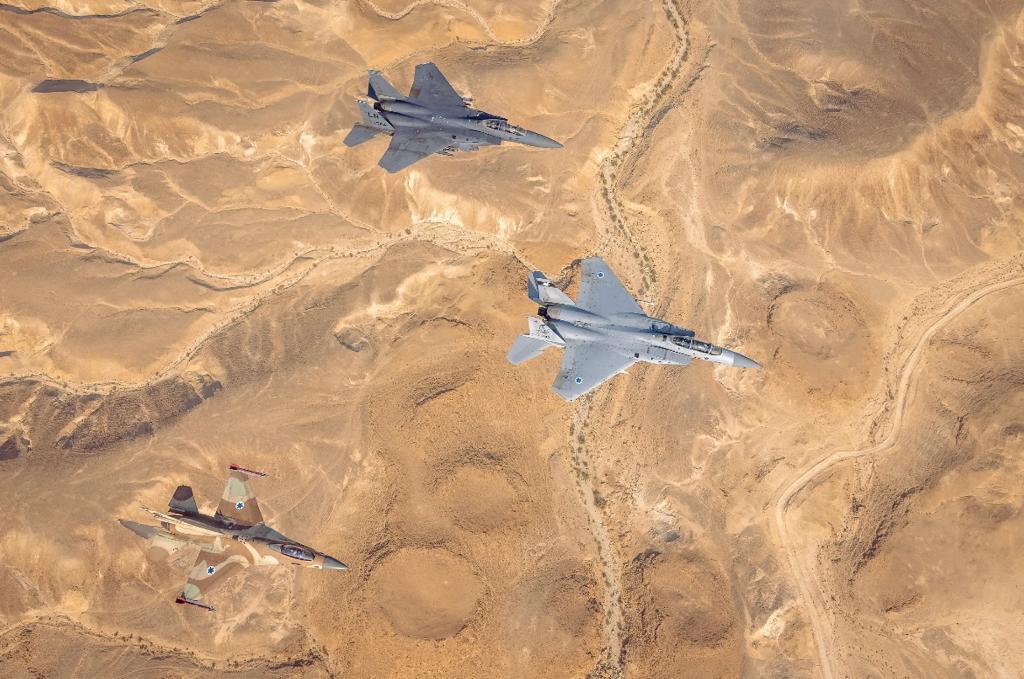
At the same time, Israel will have to make sure all its systems are operating at full capacity.
First and foremost, air defense, which will react to anything that looks like a response on any scale, and the Military Intelligence Directorate and the Mossad, which will have to make an unprecedented effort ahead of any strike, collecting not only information about the Iranian nuclear program but also tactical and operational intelligence that will allow the IDF to strike effectively.
While all this is happening, Israel’s ground forces will have to be on the highest alert, ready for a war in the north or with Gaza, or both—all without leaving any signs. They will have to up the preparedness of various units, step up drills and supply missing equipment. It’s not easy to do all this in secret. Leading up to the attack on Syria’s reactor, the army was forced to resort to trickery to prepare for a possible Syrian response. Syria opted not to respond, but the Iranians might.
It takes time to make all these preparations. The IDF is waiting for four Boeing KC-46 Pegasus aerial refueling aircraft, but it could take years for them to arrive, and the Biden administration is refusing to let Israel jump the line and deliver them sooner.
It will also take months to refill the warehouses with Iron Dome interceptor missiles and other IAF precision equipment.
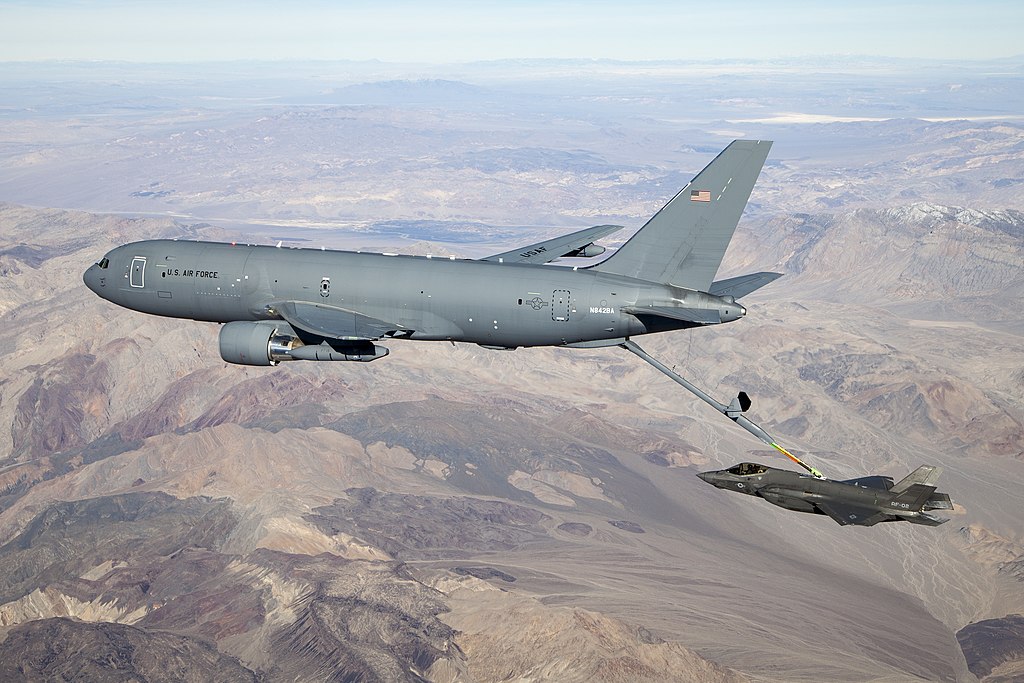
A decade ago, the IDF would have needed a few years to get ready. Then, too, it was impossible to shift the military into a state of immediate readiness, and when it was put into attack mode—and that happened a few times—the directive was for it to be ready within 16 days of the moment the political leadership gave the green light.
At the time, the IDF wanted to cut down the preparation time as much as possible, because it kept it from other activities and also because it came at a heavy cost to the economy. Former IDF Chief of Staff Gabi Ashkenazi would say that “In every round of preparations, El Al is half-grounded, because its pilots are on reserve duty with me.”
That was true for other systems, as well, some of which have been bolstered since then, namely military intelligence and cyber.
“The issue of information security is dramatic in an event like this,” said a high-ranking reservist officer. “We’ve never handled a challenge like this, and it’s not clear if it’s even possible to keep a secret like this for long.”
Keeping things secret will be a problem not only for the IDF and the defense establishment (the Mossad is an integral part of this mission, as is the Israel Atomic Energy Commission and parts of the Defense Ministry), but also—and mainly—for the government.
Such a dramatic decision would need to be approved by the cabinet, and the opposition leader would need to be informed. This is what Menachem Begin did prior to the attack in Iraq, when he informed opposition leader Shimon Peres of the plan. Ehud Olmert also informed Netanyahu ahead of the attack in Syria.
In this case, the cabinet will be frequently updated about preparations, and give the IDF authority to prepare for the operation. Only when the attack is imminent will the cabinet be asked to approve it. A very small group will decide on the final timing—the prime minister, the defense and foreign ministers, and possibly another minister, Lieberman, as a nod to his seniority and his status as a former defense minister.
Anyone let in on the secret at any stage will be required to sign draconian confidentiality agreements. All officials will be ordered to keep it secret, and it will be made clear that anyone who lets it out will face severe punishment.
Even before a final decision, Israel will have to decide on its red lines. It will have to define them not only for itself, but also for the world. It will have to build international legitimacy for action. Without that legitimacy, a strike could have negative results and put Israel in the position of the aggressor, while giving Iran legitimacy to return to its nuclear project. Israel would find it difficult to mount a second such attack.
“Building legitimacy in the world is complicated, because it’s hard to do without exposing the operations, which would put the attack at risk,” said former Israeli Ambassador to the U.N. Ron Prosor.
“We need to explain to the world not only why it’s vital to stop Iran, but also that an action like this could hold it back for years,” he added.

“It requires precise diplomatic preparatory work, which is also hard to do without giving anything away. The diplomats at the Foreign Ministry need to be in the loop, but none of them will know why, and certainly not when. The Mossad, the IDF, and the National Security Council will be responsible for delivering information. We can only work in full coordination with the Americans, both in terms of the military and diplomacy,” said Prosor.
“With everyone else—the Russians, the Chinese, the Europeans, the Gulf States—we need to prepare the background. Take them step by step, explain why Iran is so complicated and warn them about what will happen if Iran becomes a nuclear threshold state, or heaven forbid, a nuclearized state.”
This process will have to work differently in every country. With the British and French, for example, Israel has intelligence agreements that allow a certain amount of material to be shared.
It’s likely that Israel will share some information with the Gulf states, as well, especially to enlist its new partners (and the ones that are still in the closet) to stand by its side on the day of the attack and during whatever follows.
“Coordination with the Americans is strategic, it’s at the core of our interest,” said the senior IDF official. “They can give us lots of help in the attack itself—for example, intelligence or radar support, which are deployed in Iraq and the Persian Gulf, and even search and rescue capabilities, and of course, in providing us military protection after the attack.”
As part of the new plans being drawn up now, the IDF is also preparing for the possibility of attacking without coordinating with the Americans.
“We don’t need a green light from them, but it would be good if there were an understanding, an amber light, mostly so we don’t surprise them,” said one former senior defense official. “So this attack should come after the Americans despair of ever reaching a nuclear deal with the Iranians,” the official added.
Most experts believe that the operation will have to focus only on the core of Iran’s nuclear program and its enrichment sites: “Make it clear to them that this is what we insist on, and that we have no interest in a full-scale war,” the former defense official said, adding, “But if they respond, we’ll take the rest, too.”
Israel would prefer to carry out a strike like this in a single shot, which is why it would prefer that the Americans do it.
The U.S. could attack, assess the damage, and go back the next day, and the day after, if necessary. Israel, however, is extremely limited because of the distances involved, the number of planes it has and its need to defend itself against a response on multiple fronts the moment it attacks.
Some officials think that Israel should take advantage of the opportunity of an attack to eradicate as many of Iran’s capabilities as possible—and especially try to destabilize the regime through an attack on the Islamic Revolutionary Guard Corps. But that scenario is unlikely. Conversations with many defense officials past and present leads to the conclusion that Israel would prefer a more focused action.
It would be a complex strike, involving hundreds of aircraft. Presumably, the first planes to arrive in Iran would be the F-35 stealth fighters, which would destroy Iran’s air defenses. Then F-15s and F-16s would arrive. The main factor is what each aircraft can carry, given the distances involved; the more fuel a plane is loaded with, the fewer weapons it can carry, and vice versa.
So there will be a need for mid-air refueling, as well as decisions about what planes to send in to leave behind enough to defend Israel’s own skies.
We can also assume that the strike will be accompanied by search and rescue forces in helicopters and on the ground, who will have been flown in secretly ahead of time, or moved in on ships. Naval forces will also be moved toward the Gulf. Other aircraft will have to provide air coverage over a distance of 807 miles or more.
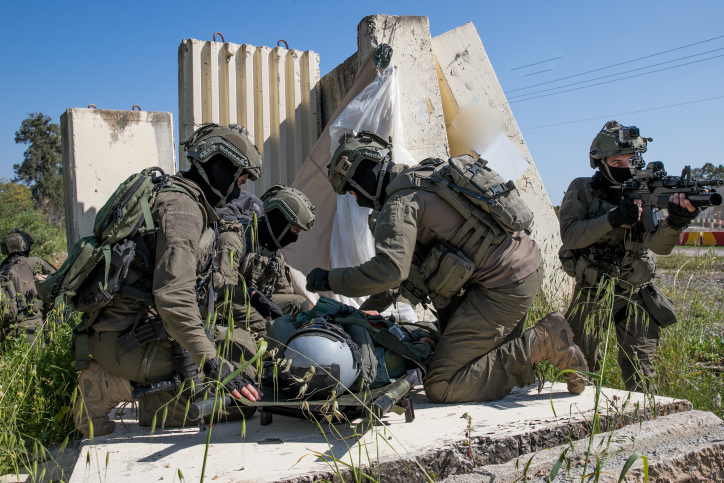
There is no expectation that this attack will go smoothly, like the ones in Iraq or Syria. It’s not only that Iran is much better defended, but also that an operation like this will inevitably face problems because of the enormous number of aircraft taking part in it.
Planes could go down because they are hit or malfunction, and pilots could have to abandon their planes over enemy territory and be taken prisoner. Pilots will have to undergo complicated mental preparations, far beyond the usual, as will those who send them on the operation.
It will be complicated to reach Iran by air. You don’t need to be an expert to analyze the flight routes and possibilities.
Supposedly, all of Iran’s neighbors—including Turkey—have an interest in working with Israel, given their common concerns about Iran. But it’s doubtful they will want to be exposed as having allowed Israel to use their airspace to attack Iran. This is particularly true of Jordan, Saudi Arabia and the Gulf states, and to a lesser degree Azerbaijan, which also shares a border with Iran.
The IAF can overcome this difficulty from an operational perspective and fly unseen (certainly on the way out), but this is another reason why extensive diplomatic preparations are necessary ahead of an attack.
Furthermore, airstrikes alone will probably not be sufficient to destroy Iran’s underground nuclear facilities. It’s possible that some will require the involvement of ground forces. This element significantly adds to the planning load and complexity of execution.
There are a number of ways into Iran, but it’s a huge country and difficult to get around in—certainly when one has to do so covertly. The Americans will testify to this—they learned this lesson in 1980 when they landed for their failed attempt to free the hostages being held in Tehran.
The former defense official noted that “If we attack and delay Iran’s nuclear program by a year or two, it’s as if we did nothing. We need to be sure that significant damage is done and we’ll put them off [nuclear weapons] for many years.”
There are many officials in Israel who think that given the state of Iran’s nuclear program, the mission is too much for Israel, and that only the Americans (or the Americans with Israel) can pull it off. Others think that Israel can carry out an effective localized strike that will deal a blow to one aspect of Iran’s nuclear program, but not destroy it entirely.
In making the decision, Israel will have to weigh not only the results, but also the ramifications, “the day after.” Here, too, the range of possibilities is nearly endless, from the Iranians ignoring it to an all-out war in the Middle East.
In 2010, the United States warned that an Israeli attack on Iran would lead to a world war. The Americans were mostly bothered by the price they would pay, which they claimed would entail a U.S. ground incursion in Iran.
According to Yadlin, “I thought then, and I think now, that there won’t be a world war, or even a regional war. Even if there is an Iranian response against Israel, it will be moderate, and even if it causes damage, it won’t be the end of the world. We certainly won’t see another sacking of Jerusalem here.”
Supposedly, the Iranians have three possible responses: a full-out response, a partial response, or no response. Middle East scholar professor Eyal Zisser of Tel Aviv University thinks that there will be a response.
“If they don’t respond, it will send Israel a message that it can keep attacking them without interference, like it does in Syria. The attacks on oil tankers in the past two years proved that the Iranians aren’t sitting quietly. They respond. Otherwise, why have they been making threats all these years and building their forces? They can attack us, or our allies, or both,” said Zisser.
The Iranian decision will to a large extent be dictated by the extent to which the Americans back the attack.
“Iran can’t risk a war with the United States,” the IDF official explained. “Even after [IRGC Quds Force commander] Qassem Soleimani was killed [by the United States], they made due with a symbolic firing of 16 rockets at the American base in Dir a-Zur, and that was only after they made certain that no soldier would be killed.”
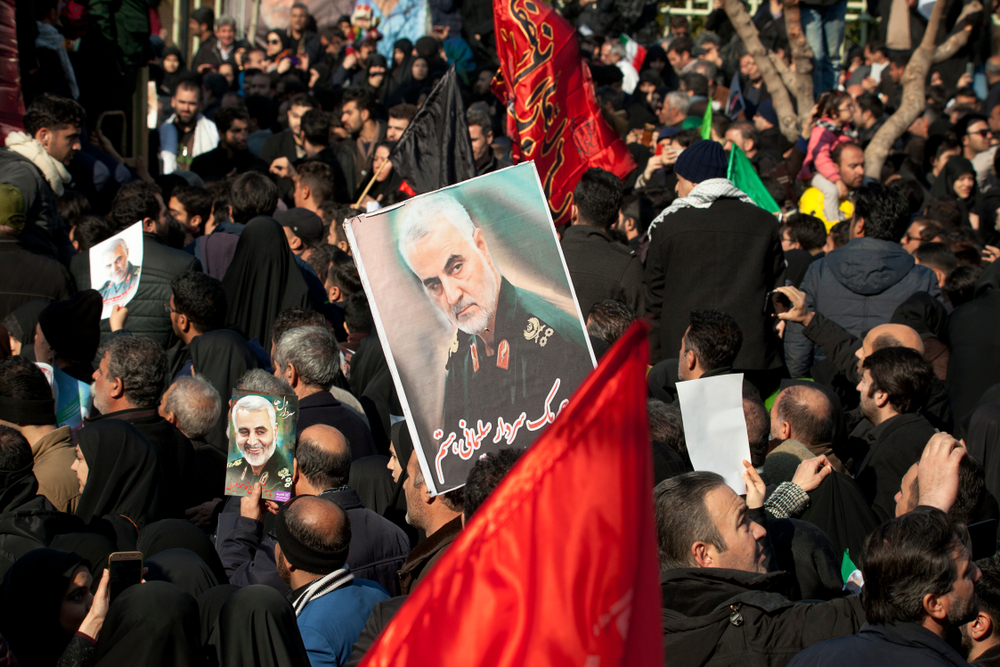
Shine also thinks that the Iranians will respond, but that “if the U.S. is behind us, it will be completely different. This isn’t the Syrian nuclear reactor, which was built secretly and no one knew about. Everyone knows about Iran, and it won’t go unnoticed. Iran will have to decide whether or not to respond from its own territory, on its own, or through its satellites.”
Thus far, Iran has avoided launching open attacks from within its borders. It’s not that it doesn’t—the massive strike on Saudi Arabia’s Aramco oil facility in September 2019 was secretly launched from Iran. Recently, Israeli Defense Minister Benny Gantz revealed cruise missile bases that the Iranians maintain at Kashan, north of Isfahan. That facility and others are operated by the IRGC Aerospace Force under the command of Ali Hajizadeh, whom Israel has already marked as the most dangerous official in Iran after Soleimani.
Iran can act on its own, even fire Shahab missiles at Israel. It has hundreds of them, and some might even have been fitted out with chemical warheads. It can also take action via its satellites: the Houthis in Yemen have precision capabilities, including long-range attack drones, as do some of the militias in Iraq, which have already used drones against US military bases.
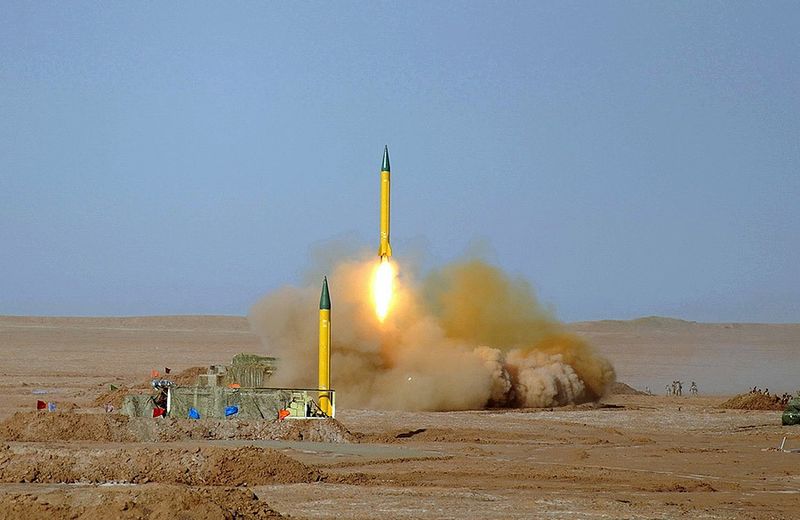
Israel’s main concern will be how Hezbollah will respond. Will it launch a war, be satisfied with a symbolic response, or sit on the fence? This is a critical issue, and experts don’t agree about it.
“Hezbollah was built up and prepared precisely for this, and we can assume that it will use everything it has against us,” said Shine. Zisser, on the other hand, thinks that Hezbollah will want to avoid a full-scale war.
“[Hezbollah leader Hassan] Nasrallah will try to stay out of it. He might respond here or there, but it will depend on how much pressure the Iranians put on him. He might be satisfied with a symbolic response, to do his duty, and nothing more,” he said.
The other side isn’t the only one that will face tough decisions. Israel, for example, will have to decide whether or not it wants to carry out preemptive strikes against Hezbollah’s various sites, especially those linked to the group’s precision missile program.
The advantage of strikes like these is that they can take out specific capabilities that threaten Israel. The disadvantage: it will surely start a war with Hezbollah, and turn the strike on Iran into a war in the north.
Most experts think Israel will avoid doing this. It will send Hezbollah clear warnings that the attack was directed at Iran’s nuclear program, and that if Hezbollah keeps quiet that will remain its only goal.
“If we do otherwise, if we take massive action in Lebanon, Hezbollah will respond significantly,” said Zisser. “But if we act wisely, even its responses will be moderate, because they have no interest in the IDF taking a few divisions and invading Lebanon.”
The senior IDF official also thinks that Hezbollah won’t rush to demolish Lebanon for Tehran’s sake.
“Nasrallah is a Lebanese patriot. He’ll respond, but moderately. Assuming that the main target of the whole event is Iran’s nuclear program, Israel should even accept some ‘stings’ from him, even a few casualties, and ignore it, to avoid a widespread conflict in the north,” the official said.
Yadlin also thinks that Hezbollah will keep itself in check.
“But if it chooses to respond, it would be better for us to take action now, before it’s defended by Iranian nuclear weapons,” he said.
A war in the north, on any scale, will require Israel to call up massive forces, which will hinder its ability to wage a war against Iran. It will certainly need to equip itself ahead of time with tens of thousands of Iron Dome and David’s Sling interceptor missiles, only a small part of which have been agreed on and are due to arrive bit by bit over the next few years. This is in addition to the need for Arrow missiles to intercept long-range missiles.
All this will cost billions, and only part of it is in place (and that was thanks to special U.S. aid). For years, the IDF has been screaming that the country’s air defenses fall far short of what is necessary, given the threats, and need extensive restocking.
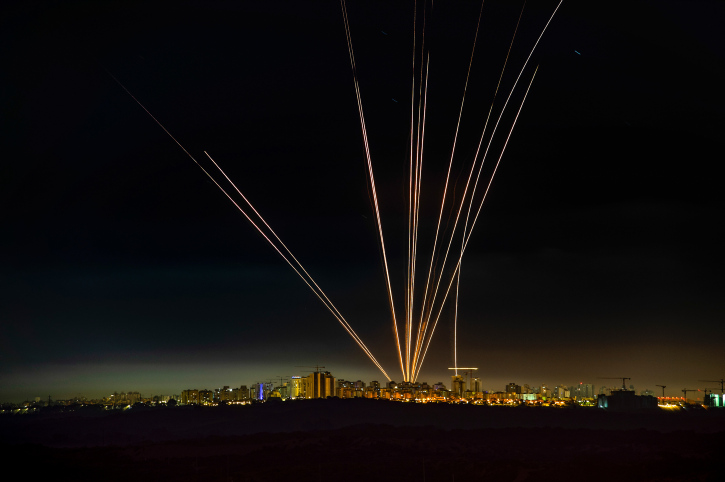
It’s likely that Iran will also prod Gaza to respond. The Palestinian Islamic Jihad already cooperates with Iran, as does Hamas to some extent. It could also try to attack Israel’s weaker allies, like the Gulf states, or Israeli interests there. It will certainly try to attack Israelis, and Israeli and Jewish interests all over the world.
At the same time, Iran will take diplomatic action.
“It will turn to its allies, especially Russia and China, and argue that Israel is the aggressor and ask for protection,” said Zisser. “It might also use [the attack] as an excuse to try and return to its nuclear project, this time in the position of the one who needs protection against Israeli aggression.”
Therefore, Israel has to do everything possible to maximize the effectiveness of an attack, and if the first wave doesn’t succeed, attack again, despite the complications this would entail. This will comes at a possible cost of open war with Iran. The IDF is also preparing for this possibility.
None of this is expected to happen in the next few days or weeks, and probably not even the next few months. As long as the Iran nuclear talks are underway, and the United States is reaching out to Iran diplomatically, an attack would be out of bounds because Israel would be accused of torpedoing the talks.
Israel’s allies would turn on her, including Washington, which has already made it clear that it expects “zero surprises” at this time. Israel has made no commitment to this, but won’t act without coordinating with the Americans.
This “down time” is good for Israel. It can use it to try and influence the American (and European) moves and the nascent deal, while at the same time stepping up its military preparations, completing its plans, building models and equipping itself in order to reach a higher level of operational readiness.
And when all this is done, if it turns out tomorrow that Iran lied to the world and is closer to a nuclear bomb than we thought, the decision-makers will have to make the call.
As always, it would be better if the Americans—who promised that Iran would never have nuclear capabilities—did it. But if the IDF takes charge, it will take long weeks of preparation before an operation like this can get off the ground—with less certainty of success.
Yoav Limor is a veteran Israeli journalist and columnist for Israel Hayom.
This article first appeared in Israel Hayom.
(JNS).